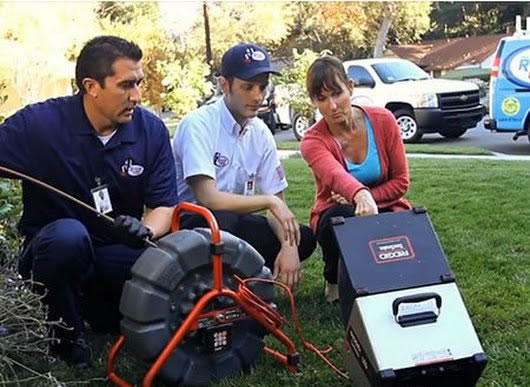
Here are practical, proven ways to keep your plumbing running smoothly for years to come.
1. Be Mindful of What Goes Down Your Drains
Everything that goes down your sink, toilet, or tub affects your plumbing system. Grease, coffee grounds, eggshells, and fibrous vegetables like celery may seem harmless—but they’re among the top causes of clogs. In bathrooms, hair and soap scum create buildup in pipes over time.
To prevent this:
-
Use sink strainers in kitchen and bathroom drains
-
Never pour grease or oil down the drain
-
Flush only toilet paper—no wipes, cotton, or hygiene products
These small choices protect your pipes from unnecessary wear and reduce the chances of blockages.
2. Fix Small Leaks Promptly
Even a slow drip can waste hundreds of gallons a year—and more importantly, it can be a sign of pressure imbalance or corroded parts. Left unchecked, leaks can weaken pipe joints and cause structural water damage. If you notice a leaky faucet, water under your sink, or moisture around your toilet base, act quickly.
Repairing a minor leak is typically quick and affordable, and it prevents larger issues like mold, mildew, or drywall damage from forming.
3. Schedule Annual Plumbing Inspections
Plumbing issues often go unnoticed until they become emergencies. Annual inspections help catch problems early—like small cracks, weak connections, or sediment buildup in your water heater.
A licensed plumber in San Fernando can inspect hard-to-reach areas, test water pressure, assess drainage speed, and identify aging components before they fail. Regular maintenance keeps your system efficient and may even reduce your water bill over time.
4. Insulate Exposed Pipes
Pipe insulation isn’t just for homes in cold climates. Insulating pipes in garages, basements, or exterior walls helps protect against temperature-related stress and condensation buildup. Over time, temperature swings can cause pipes to expand and contract—eventually leading to cracks or bursts.
Foam pipe sleeves are easy to install and offer lasting protection with minimal investment. If you’re unsure which pipes need insulation, ask your plumber during your next inspection.
5. Flush Your Water Heater Once a Year
Sediment buildup in your water heater reduces its efficiency and can shorten its lifespan. A yearly flush removes debris, improves heating speed, and extends the unit’s functionality. It also prevents odd noises and discolored water, which are signs of internal corrosion.
If you’ve never flushed your tank before, it’s a good idea to have a professional do it the first time. They’ll also inspect the anode rod and valves to ensure your system is working safely.
6. Use Water Pressure Moderately
High water pressure may feel great in the shower, but it puts a lot of strain on your pipes and fixtures. Over time, this added pressure can lead to pipe bursts, leaks, or damaged appliances. Ideally, residential water pressure should be between 40–60 psi.
If your pressure feels too strong, a plumber can install a pressure regulator or adjust your current setup to protect your plumbing long-term.
7. Upgrade Old Fixtures and Piping When Needed
Old plumbing materials like galvanized steel or polybutylene are prone to corrosion and breakage. If your home is over 30 years old, it may be time to replace some of your pipes—especially if you’re noticing signs of rust in your water or frequent leaks.
Likewise, replacing outdated toilets, showerheads, and faucets with newer, water-efficient models can reduce water usage and improve overall system performance.
Consulting a pro from Rooter Hero Plumbing & Air of San Fernando is a great starting point. They can inspect your system and recommend updates that match your home’s needs and budget.
8. Don’t Overuse Chemical Cleaners
Chemical drain cleaners might offer a quick fix for clogs, but they’re extremely harsh on your pipes. Repeated use can corrode plumbing and wear out seals. Instead, opt for natural enzyme-based cleaners, or use a drain snake for physical removal of blockages.
If clogs persist, it’s better to rely on a professional rather than damaging your plumbing further.
9. Know Your Shut-Off Valves
In the event of a major leak, knowing how to shut off the water supply can prevent severe water damage. Learn where your main shut-off valve is, and test it occasionally to make sure it works. Also, identify shut-off valves for sinks, toilets, and appliances throughout your home.
This small step can save you thousands in emergency repair costs.
10. Plan for Long-Term Care
Plumbing isn’t something most homeowners think about until it breaks. But proactive care—like the steps in this guide—can significantly extend the life of your system and reduce surprise repairs.
As your home ages, stay ahead of wear and tear by working with a knowledgeable plumber in San Fernando who understands your area’s water quality, infrastructure, and seasonal challenges. A solid relationship with a local expert means faster service, better insights, and peace of mind.
Final Thoughts
Extending the life of your plumbing system is all about consistency and smart maintenance. With regular inspections, mindful daily habits, and timely upgrades, your system can serve you efficiently for decades.
Whether you’re fixing a minor leak or planning a full system update, having the right professional on your side makes all the difference. Trust your home to experts who know the value of prevention—and help you protect what matters most.
Comments
Post a Comment